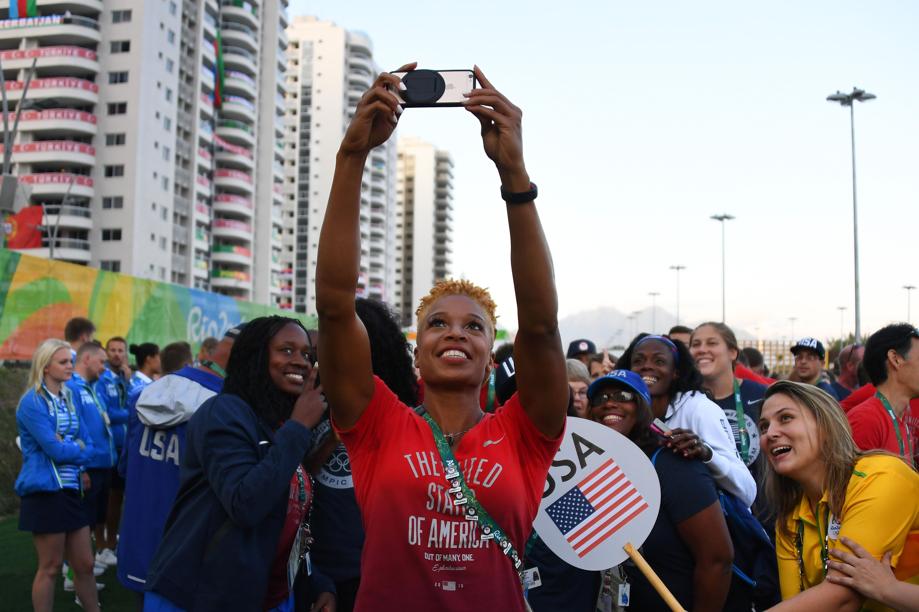
RIO DE JANEIRO — Seven years ago — before this coastal city was chosen over Chicago, Tokyo, and Madrid to host the Games of the XXXIst Olympiad — Brazilian president Luiz Inacio Lula da Silva urged skeptical International Olympic Committee members to dare to venture below the equator.
“It is time to light the Olympic cauldron in a tropical country,’’ he said.
On Friday night, the flame will be ignited inside massive Maracana Stadium, and acting Brazil president Michel Temer will declare open both the first quadrennial summer carnival to be held in South America, and the first to be staged entirely during the host country’s winter season.
Rarely has an Olympic city faced as many daunting challenges as has Rio. A cratered national economy. Political corruption. Persistent and pervasive crime. A polluted bay and waterways. Gridlocked traffic. And the mosquito-borne Zika virus.
But despite widespread calls over the last several months to move the world’s largest sporting event elsewhere on the planet, these Games will begin as scheduled.
“They’ve done a great job, the best that they could, to make sure that we have everything that we needed in the Village,’’ said US swimmer Missy Franklin. “I think everything’s super-convenient. We’re really close to the dining hall, we’re close to transportation, we’ve had no issues with buses or anything like that. Everything seems to be running really smoothly.
“So far, it’s been a wonderful experience.’’
And construction delays made it impossible to test many of the facilities a year in advance, as is the Olympic custom.
“It’s a difficult track to race on because the wood is new and a little bit damp,’’ German cyclist Rene Enders said of the velodrome. “It will get faster in a few years but not during these Games. It’s OK because it is the same for everybody.’’
Despite serious concerns that competitors in the outdoor water sports would be at risk of being sickened by sewage, conditions appear to be better than predicted.
“Everything has been above people’s expectations in terms of how clean the water is, how beautiful it is,’’ Newton sculler Gevvie Stone said about the rowing course at Lagoa Rodrigo de Freitas.
Once the athletes settled in and began practicing, the focus shifted to the events, which began Wednesday with women’s soccer matches. For the Americans, who have topped the Summer medal table since 1996, these Games should provide another gold rush, particularly on the women’s side, where the basketball, soccer, gymnastics, and rowing teams again are expected to dominate.
The 554-member US squad, which will be led into the stadium by flag bearer (and 18-time swimming gold medalist) Michael Phelps, figures to make the podium in at least 24 of the 32 sports, from archery to wrestling.
Their task will be made easier by the absence of well over 100 Russian rivals who have been banned in the wake of widespread state-sponsored doping in sports ranging from track and field to weightlifting to rowing.
The Russian reduction, unprecedented in Olympic history, also stands to benefit the Brazilians, who could win more than two dozen medals, half of them gold, in sports ranging from beach volleyball to swimming to judo. But the one they want most — the men’s soccer title — is the one that has proven most elusive, particularly after the team’s spectacular failure in the 2014 World Cup on home turf.
Should they win it in Maracana, the country’s most storied edifice, on the penultimate day of the Games, the populace may well conclude that these Olympics were worth the extraordinary $12 billion expense and inconvenience for a 17-day sporting festival that probably will not produce the promised public benefits, such as improved transportation and clean water, for years.
These Games were conceived as a coming-out party for an emerging nation that was ready to take its place on the global stage. After awarding successive Games to North America (Atlanta), Oceania (Sydney), Europe (Athens), Asia (Beijing), and Europe again (London), the IOC concluded that it could not ignore this continent indefinitely.
Rio’s selling point was the romance of sun, sand, surf, and samba, of beach volleyball being played at Copacabana instead of atop the pavement of London’s Horse Guards Parade.
“We all love being in Rio,’’ said US gymnast Danell Leyva. “I feel like I’m home in Miami. The weather’s amazing, the people are amazing.’’
The first Games in this corner of the world are inescapably tropical. The golf course in Barra da Tijuca is amid the Marapendi natural reserve where monkeys, three-toed sloths, boa constrictors, and the giant capybara rodent roam freely and where ground-nesting owls dig holes in the bunkers.
“The players won’t be too upset,’’ said Mark Johnson, the PGA Tour’s director of international agronomy. “They’ll just get a free drop.’’
John Powers can be reached at john.powers@globe.com.



